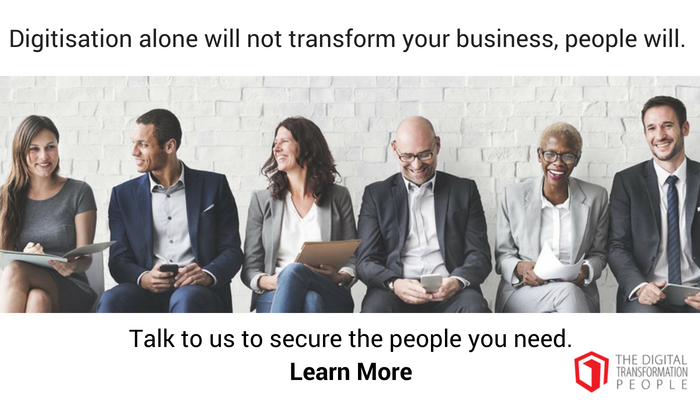I really do count my blessings. At a formative juncture of my career, I joined ad agency Ogilvy&Mather (now just Ogilvy) in Toronto. Beyond the obvious attraction of working on IBM and Kraft, I was enamoured with their culture of “long hallways” and “gentlemen and ladies with brains”.
It was an incredible five years where I built friendships that last to this day and a work ethic that still underpins how I approach client challenges now.
It gave me a benchmark to evaluate the culture of organizations I worked at – and with – in the years since. If I’m being candid, few have matched it.
It also sparked in me an appreciation of how pivotal culture is to the success of an organization. To this day Ogilvy is renowned, within ad agency circles, as having a very strong well-defined culture.
Which is why I get frustrated, and a tad concerned, when I see articles and posts talking about culture in terms like “good” or “bad”. Titles like “5 Signs Your Culture is Toxic” or “10 Tips to Build A Good Culture for Millennials” drive me a bit batty.
Not because their intent is wrong. It’s the framing of Culture that is erroneous.
And potentially dangerous.
Culture can’t be evaluated in terms like “good” or “bad”. That suggests that a binary process like counting the number of foosball tables, trust falls at the annual off-site, “bring your dog to work” Friday’s and policies on telecommuting, is the critical determinant of an organization’s culture’s efficacy.
Arghhhh no!
The only question you really should be asking of your Culture is;
“How effectively is our Culture letting us deliver on our strategy?”
Or to paraphrase acclaimed culture academic Edgar Schein;
“Culture is neither good, nor bad. It just is”
How wonderfully Zen. How deliciously prophetic for a world obsessed with genuflecting to a new crop of Millennial talent.
Schein’s point is quite profound though. At its simplest Culture is really only a means for outsiders to describe the way people within an organization act and behave. Inside an organization its merely shorthand for how things happen around here.
Ergo characterizing Culture in terms of good, bad, toxic, invigorating and other terms is misplaced.
The other point – which the pundits of “5 Signs Your Culture is Toxic” and other sweeping generalizations miss – is that no Culture is universally bad or good. Nor are all Cultures universally right or wrong in their ability to accelerate your corporate strategy.
It’s more nuanced than that.
There will be areas within your Culture that fit your strategy like a glove. There will be areas where modification or change management is required. Of course the preference is the former but the reality is more likely a combination of both. Areas that are like a strategy accelerant. Areas that are like a cold shower on your strategic ambitions.
Your role, if you’re responsible for delivering on the organization’s strategy, is determining which actions and behaviours fall where. Where to reinforce behavior and where to modify it.
As I look around the business world today, a couple of observations spring to mind that likely directly impact Culture. Of course, how deeply they impact your Culture is something only you can answer.
Culture is more democratic. That doesn’t mean a socialist utopia where everyone is equal and gets a vote on where the Xmas party happens. It does mean that your employees – and the talent you’re trying to attract – vote every day. They vote with their attitude. Their enthusiasm. Their willingness to change or try new things. Essentially whether they chose to lean in…or mail it in. And as talent becomes more scarce, it becomes more crucial that they’re voting to join you – and not your competition.
Culture is more diverse. That’s more than just the number of minorities or women in senior positions. (Likely you already know that those numbers are too low). It is about how increasingly your organization is composed of diverse relationships. Relationships you’re now trying to align. The number of freelancers or contractors. The number of folks telecommuting (or not at Yahoo) working remotely or hot desking. The level of outsourcing and near-sourcing you’re doing. All these relationships add complexity to forging an optimal culture.
Culture is more adaptive. Whether you’re driven to get more efficient or more innovative, it is likely your Culture is having to “adapt” with increased frequency. And increased intensity. The luxury of status quo is a distant memory in most categories. As is a static Culture. If your strategy requires you to “pivot” to gain advantage, and most seem to today, then you better pray your culture has that dexterity too.
Culture is more “Purpose”-ful. Another layer on the notion of democracy is the increased popularity of the notion of corporate Purpose. What is the driving intent of your organization and does that attract – or repel – the talent you need to succeed? The necessity of defining and communicating a reinforcing Purpose throughout your Culture is en vogue. Critically, using Purpose to codify organizational attitudes and behaviours has become paramount.
What’s undeniable is that Culture is a strategic point of differentiation. Growing it, nurturing and, ultimately wielding it in the market, is an increasingly important requirement of all business leaders. To them, I have one simple request.
Please stop judging your Culture, or the Culture within your competitors, through the lens of such flawed terms as good or bad. Your single focus must be to answer one question.
“Does our Culture accelerate or impede the delivery of our Strategy?”
Your next generation of motivated employees will thank you. And, I hasten to add, the talent you’re trying to attract may just start paying more attention too.
Article by channel:
Everything you need to know about Digital Transformation
The best articles, news and events direct to your inbox









